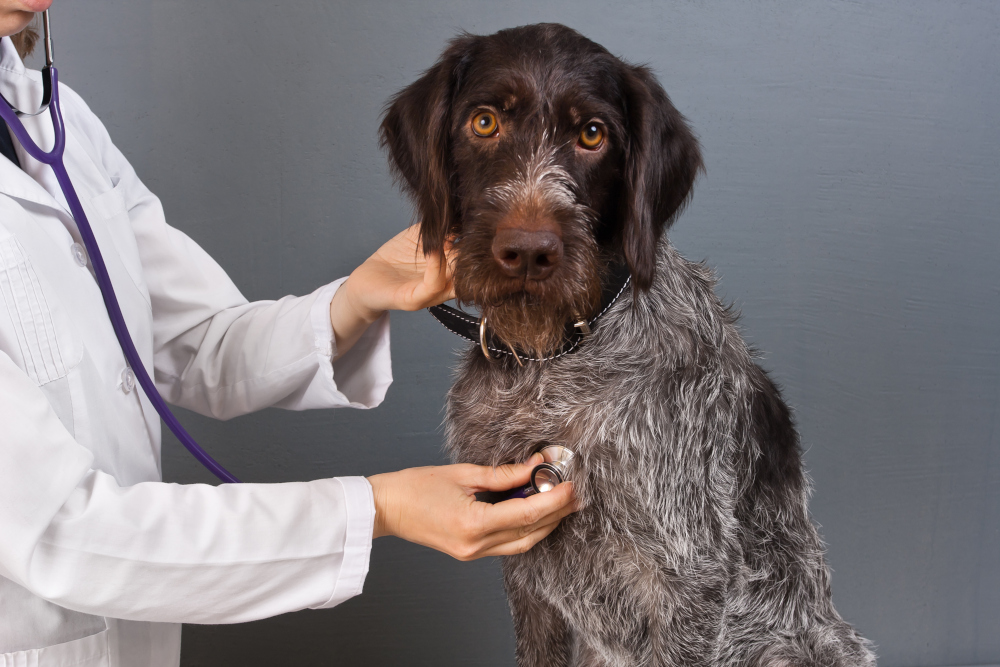Santa Paws: Holiday Gifts for Pets

The team at Felton Veterinary Hospital loves spoiling our personal pets (we’re talking about you, Dr Atton!) and our pet patients. We have a few ideas to share if you’re searching for the best holiday gifts for pets this season. And because we want to spare you a holiday visit to the pet emergency room, we’ve also included a few gifts to avoid. Let us know what you think!
Best Holiday Gifts for Cats
Many cat owners wouldn’t dream of leaving their kitty off the holiday gift list, but this can be challenging for the cat who has it all. Here are our favorite ideas for making your cat’s holiday purrfect.
Continue…Pet Safety Tips for Halloween

Halloween is just around the corner, and for many of us in Santa Cruz County, this is the favorite holiday of the year. You can tell by all the Halloween decorations that have been up for weeks! For children and adults alike, the costumes, treats, and parties surrounding Halloween can be great fun. But this holiday can be particularly spooky for our pets. Felton Veterinary Hospital cares about pet safety as much as you do, so let’s explore some ways to make “Fright Night” safe and fun for pets and the entire family.
Continue…Skin Cancer in Pets

Your pets may enjoy their time in the sun as much as you do this summer. And although they may love basking in the warm rays, skin cancer is a risk for pets just as it is for humans. According to the American Kennel Club (AKC), skin cancer is the most common type of cancer diagnosed in dogs. Cats, too, are often affected by skin cancer, especially cats with short hair, light-colored coats, and lots of sun exposure. Regular annual wellness visits with your veterinarian are essential, including a complete nose-to-tail physical exam and looking for signs of skin cancer. Your pet’s veterinarian can detect skin cancer at these visits, but it’s also essential for pet owners to understand and recognize signs of pet skin cancer, especially as pets age.
Continue…How to Prevent Lyme Disease In Pets

You may be hearing more about Lyme disease recently, and for good reason. Current estimates from the CDC show that 300,000 to 400,000 people in the US are diagnosed or treated for Lyme disease yearly. The disease affects humans and animals and, if left untreated, can result in painful complications.
Lyme disease is a bacterial infection transmitted by the bite of an infected tick. The bacterium Borrelia burgdorferi is responsible for Lyme disease, which has become the most common vector-borne disease in the United States.
With spring rains, moist air, and tall, green grass, now is the time to prevent this debilitating disease’s spread to your pets. Felton Veterinary Hospital shares a few tips for how to keep your best friend safe.
Continue…Valentine’s Day For Pets

Your pet doesn’t necessarily care about Valentine’s Day. Still, the annual holiday of love would not be the same if we didn’t include our furry friends. Seeing them “opening” their valentines, gobbling up homemade valentine’s treats (no chocolate, please!), and enjoying this day of love is so much fun. But, if your cat or dog already has everything under the sun, it can be challenging to find something new and exciting to give them, especially at the last minute! But, for the dog or cat with everything, these unique valentines ideas are sure to please.
Continue…Fall Pet Allergies

Fall in the San Lorenzo Valley brings many delights: golden leaves, warm weather (or rain!), wind, and of course, pumpkin spice everything. For pets with allergies, it can also mean the onset of intense itching and skin infections.
Contrary to popular belief, allergies in pets don’t occur only in the springtime. Fall allergies can also be a problem for your pet, caused by weeds that pollinate in the fall, namely, ragweed. Other weeds that pollinate in the fall include sagebrush, plantain, and lambs-quarters.
Pets with environmental allergies, known as atopic dermatitis, or atopy, can be allergic in one season, or may be allergic year-round. Allergens can include pollen, grasses, house-dust mites, and mold. The windy conditions we’ve seen in our area this late summer and fall have contributed to a particularly challenging allergy year for pets. And although rain can calm things down, ultimately allergic pets will be uncomfortable again when it dries out. Continue…
Keep The Feast on the Table, Not Under It…And Other Thanksgiving Pet Safety Tips

Anyone who has pets knows the pain of resisting puppy dog eyes at the dinner table. As cute as they are, our pets often win the battle on that one. But when it comes to Thanksgiving safety for pets, it’s important to understand the risks and repercussions of giving in.
But letting your pet partake in the feast is not the only risk to their health around the holidays. Keep reading for Felton Veterinary Hospital’s best tips for Thanksgiving pet safety, and avoid an emergency room visit on this, the most festive of holidays.
Continue…Unmasking Melanoma in Pets

With the summer season upon us, the Centers for Disease Control has started to issue warnings about sun safety to help protect Americans against sun-induced tumors such as melanoma. Since pets don’t sunbathe or go to the tanning parlor — both risky behaviors when it comes to skin cancer — and are covered in fur, how could that dark spot on your Fluffy or Fido be a melanoma? Melanoma in dogs and cats does not look like it does in people, but it can still be deadly. Here’s how you can recognize the dreaded disease in your best friend, despite its resemblance to other problems.


 Schedule an Appointment
Schedule an Appointment